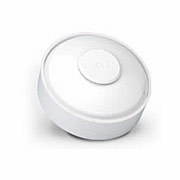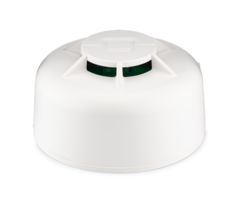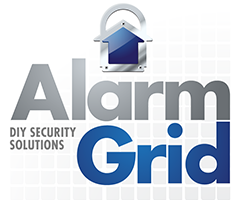Where Should I Install a Heat Detector?
You should install a heat detector in any location that is not suitable for a smoke detector. There are some areas of the home where installing a smoke detector may result in false alarms. Such areas are better-suited for standalone heat sensors. There are also combo smoke and heat sensors.
 As a general rule, the only time to use a standalone heat sensor is if you are afraid that using a smoke detector may result in false alarms. Smoke detectors will usually respond to a fire more quickly than a heat detector. That is why they are recommended in most cases. But there are some times when it is better to use a heat sensor.
As a general rule, the only time to use a standalone heat sensor is if you are afraid that using a smoke detector may result in false alarms. Smoke detectors will usually respond to a fire more quickly than a heat detector. That is why they are recommended in most cases. But there are some times when it is better to use a heat sensor.
Some areas of the home feature excessive dust or moisture that could cause a smoke detector to think there is a fire in the building when really there isn't. This can also occur in areas where smoke may be periodically present, including kitchens where food is being cooked and designated areas for smoking tobacco or other herbs. In these areas, it may be better to use a standalone heat detector.
Some of the most popular locations to use standalone heat detectors instead of smoke detectors include bathrooms, attics, garages, kitchens and designated smoking areas. Using a smoke detector in any of these areas could result in a false alarm due to excessive dust, moisture or smoke in the room. By using heat detectors, you can still monitor these areas for a fire, without having to worry about a false alarm.
Remember that false alarms can still occur with a heat sensor if it is mounted in a poor location. A heat sensor should be placed away from any vents or air ducts that may cause interference. The sensor should have its vents easily accessible, and it should not be blocked by other objects or obstacles. It is recommended that the device be placed high up off the ground or ceiling. Keep in mind that heat rises, and you will want to give the sensor the best chance of detecting unusually high temperatures.
When shopping for a heat sensor, you must make sure that the device is compatible with your system. If you are looking for a wireless heat sensor, keep in mind the signal frequency accepted by your system's wireless receiver. If you have a 345 MHz system from Honeywell or 2GIG, then a great standalone wireless heat detector option is the Honeywell 5809SS. If you have a 319 MHz system from Interlogix/GE or Qolsys, then you might consider an Interlogix HDX-200 or an Interlogix HDX-135.
Did you find this answer useful?
We offer alarm monitoring as low as $10 / month
Click Here to Learn MoreRelated Products





Related Videos
Related Categories
- 2-Wire Heat Detectors
- Wired Heat Detectors
- Heat Detectors
- Heat Alarm Sensors for Garages
- Wireless Heat Detectors
- Honeywell SiX Heat Detectors
- Battery Operated Heat Alarm Sensors
- Honeywell 5800 Heat Detectors
- PowerG Heat Detectors
- 4-Wire Heat Detectors
- Answered


